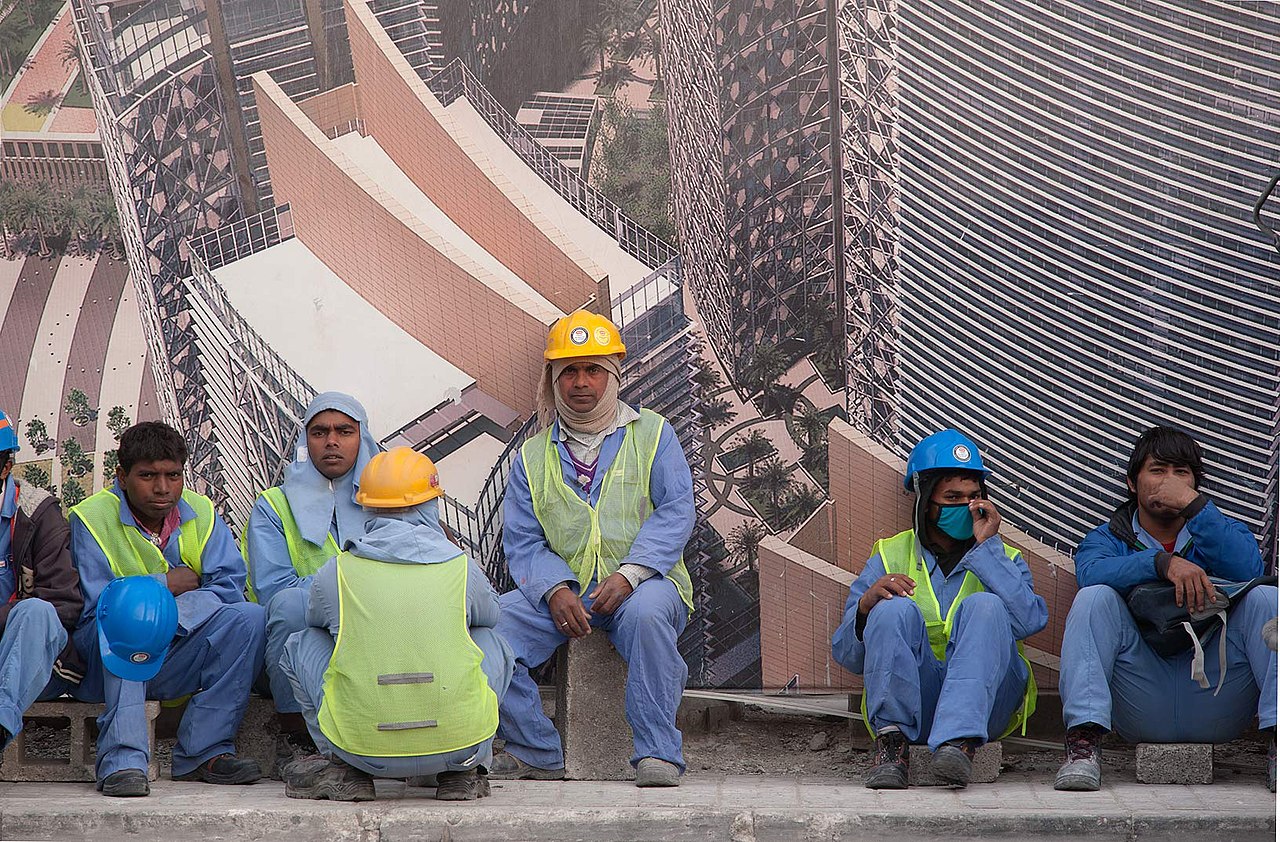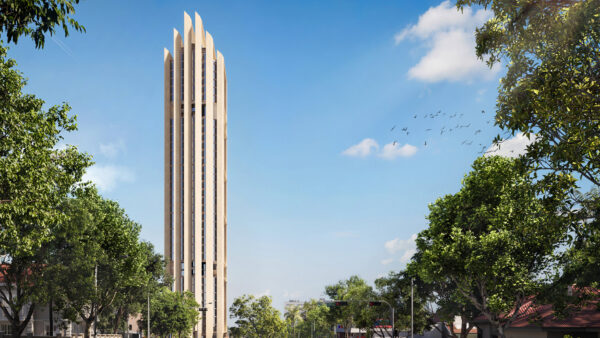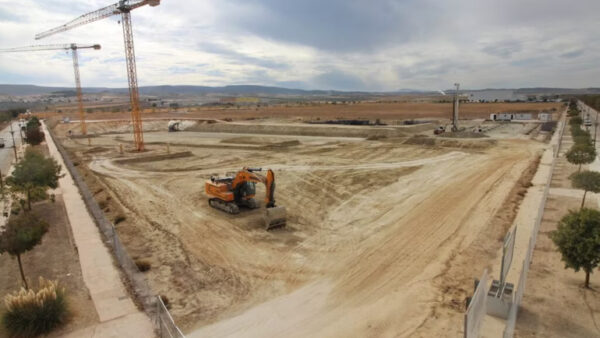
Pressure from trade unions and human rights groups, rather than football’s world governing body, Fifa, led to migrant workers in Qatar getting better pay and improved conditions, according to a new report into changes in labour conditions in the Gulf state.
The independent sports think tank Fifa Ethics and Regulation Watch (FERW) surveyed the labour force in the tiny Gulf state following reports that thousands had died getting the country ready for next year’s World Cup.
In a poll of workers, it found that reforms introduced by the International Labour Organisation (ILO) and pressure from Amnesty International to abolish the hated kefala system of sponsored labour and introduce a minimum wage had brought improvements in the lives of the workforce.
When asked “Is the World Cup helping to improve human rights and labour conditions in Qatar?” 95% of workers, mainly from South Asia, said “yes” and 5% said no.
However, although 59% were aware of reforms, 40% believed they had not been implemented “effectively” and more needed to be done.
Some 53% believed that conditions had been improved for some, 16% believed laws needed fairer enforcement, and 13% said they had not benefitted from the improvements.
Getting Qatar ready for the World Cup has led to worldwide media scrutiny of a £120bn investment programme to overhaul the country’s infrastructure, not only building eight stadiums but also a transport system and even a city.
The Doha authorities were stung into action in 2017 following negative publicity about workers’ conditions and brought in the International Trade Union Confederation (ITUC) as well as the ILO to oversee reforms.
As well as getting rid of the kefala, whereby workers had to get permission from their employers to change jobs, and introducing a minimum wage, the changes also restricted the number of working hours allowed in summer months to prevent heat-related deaths.
According to the FERW report, it was worldwide media attention on Qatar which brought about improvements rather than any change driven by Fifa, which the report’s author believes was a “missed opportunity”.
Robert Oulds, the author of the report, said: “We were able to identify, then verify through interviews with ordinary workers, that there had been significant legislative and regulatory improvements in recent years, with these being felt by all migrant workers, not just those working on the development of the World Cup stadiums.”
“We then tried to identify who was responsible for these improvements; Fifa, campaign groups, the Emir, or another organisation. Disappointingly, we found little or no evidence that football’s governing body had been part of this change, and that these improvements had been driven by three factors, namely the ruler of Qatar, the substantial body of work undertaken by NGOs like Amnesty and the ILO and scrutiny of the emirate and its treatment of foreign workers by the international media.”
In February Qatar was rocked by a report in The Guardian newspaper that calculated there had been 6,500 migrant worker deaths since Qatar won World Cup hosting rights in 2010.
Doha disputes the figure and says the mortality rate has consistently been declining due to health and safety reforms.
In 2018, Fifa brought in rules forcing countries bidding to host future world cups to disclose human rights risks and outline what they will do to address them.
- Anthony Harwood is a former foreign editor of the Daily Mail
Image: Migrant workers in West Bay, Doha (Alex Sergeev/www.asergeev.com/CC-BY-SA-3.0)
Further reading:






